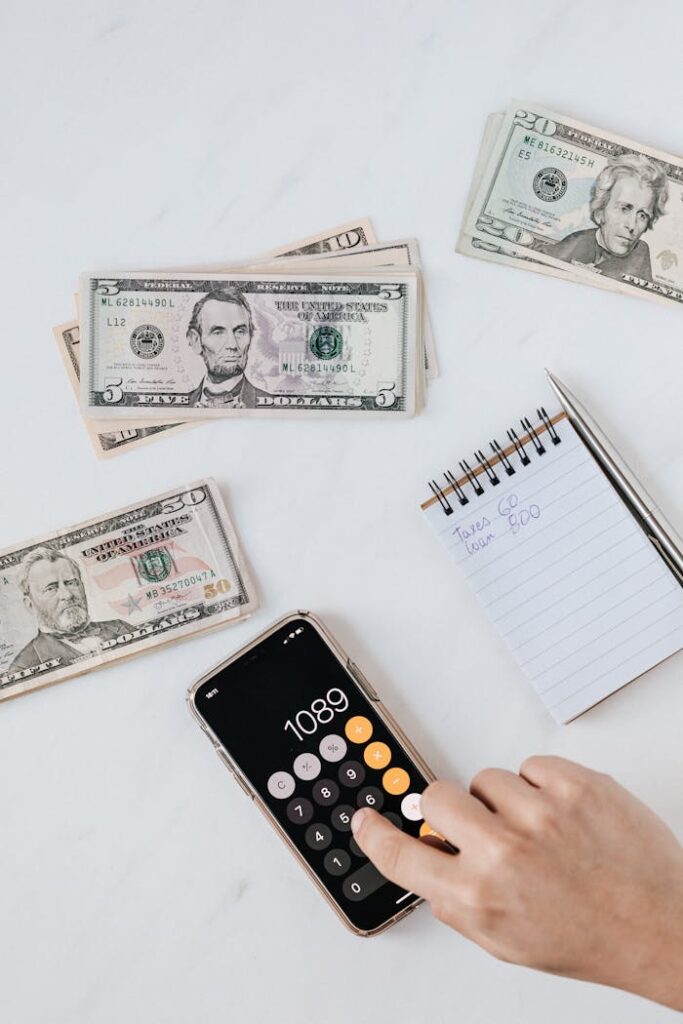While all of us feel the burden of bills and financial obligations in our daily lives, this stress can be minimized by having a good understanding of where their money is going, and getting intentional with how we spend our dollars.
Most people are surprised when they see how much they have been spending in a certain area without realizing it. Following these steps will have you well on your way to becoming more informed and intentional with your finances.
Track Your Spending
This can be a tough one for some folks. It’s not always the most enjoyable task to track all of your spending, but this is a crucial first step to understanding and taking control of your finances.
The good news is, if you aren’t into spreadsheets, there are tools that can automate the process, such as You Need a Budget (YNAB), or Quicken SimpliFi. Build a habit of periodically tracking your spending, and it will make you much more informed and intentional with how you allocate your dollars.
Create a Budget
How can you know if you can afford a specific purchase this month if you aren’t aware of how much you can spend this month in the first place? This is where a budget comes in.
Setting boundaries and expectations in your spending is key to success. Personal finance tools, such as those listed in Step 1, can also be helpful for creating a budget.
Cut Out the Credit Card
As many people do, I opened my first credit card to start building credit. At first, I always paid my credit card bill on time, and didn’t over-use it, but then I got complacent and my spending got away from me.
It is so easy to spend money you don’t have, and give up your future financial security for the short-term satisfaction. Credit card companies make it very easy to fall into this. Once you make a credit card purchase, you have around a month to actually pay it off, so purchases can add up quickly.
Credit cards can make you feel wealthier than you really are, and cause you to spend money you don’t have. Now, this is not to discourage having a credit card. Credit cards are great for building credit, but using it too often can become a slippery slope.
What I would recommend is to set-up a small automatic monthly payment on your oldest credit card, such as your electric bill or insurance bill, and then set up an automatic payment from your bank account to pay off the credit card each month.
This way, you can still build credit, but you also avoid overspending, mitigate the risk of your credit card provider closing your account due to inactivity, and it doesn’t require much time.
Establish an Emergency Fund
Having an adequate emergency fund is important not only to protect yourself from unforeseen, inevitable expenses that arise, it is also provides a great peace of mind knowing that when that unexpected expense does arrive, you can fully afford it.
An adequate emergency fund would be considered as 3-6 months of your necessary monthly expenses. 3 months if your household has two incomes (i.e. both spouses work), or 6 months if there is one income.
When you create your budget, this is a great time to build in savings for an Emergency Fund to ensure that you build up your defenses for that inevitable rainy day.
Separate Your Non-Discretionary and Discretionary Spending
All too often, having non-discretionary (necessary) expenses and discretionary expenses coming out of the same account can lead to confusion and frustration when trying to organize your finances.
One great solution for this is to have separate accounts for non-discretionary spending and for discretionary spending.
| Monthly Income |
| ↓ |
| Non-Discretionary Account (Used for Rent, Gas, Groceries, etc.) |
| ↓ |
| Discretionary Spending Account |
Once you have your budget completed for the month, you can transfer your discretionary spending amount from your Non-Discretionary Account in the separate “Fun Money” account. I personally use an Ally bank checking account for my “Fun Money” account this and it works excellent.
To take this further, married couples may benefit from having their own separate “Fun Money” accounts, although this can get messy. Generally, I don’t advocate for splitting finances in a marriage, but is an exception, and it works well for my wife and I. Keep in mind that every couple is different and this method won’t be for everyone.
Focus on the little wins
Achieving financial freedom is not a quick process, and it can sometimes feel like you are spinning your gears and not making any progress. Track your progress and compare where you were a few months ago with where you are today.
Improving your financial situation is great, but what is the point if you are not enjoying life? Money is important and necessary, but there is much more to life. Use these steps as a guide to improve your finances, and make sure to keep a big picture view and enjoy life for today!


My brother suggested I might like this website. He was totally right. This post actually made my day. You cann’t imagine just how much time I had spent for this information! Thanks!
Hi Kenny, thanks for reading! I’m glad you enjoyed it!